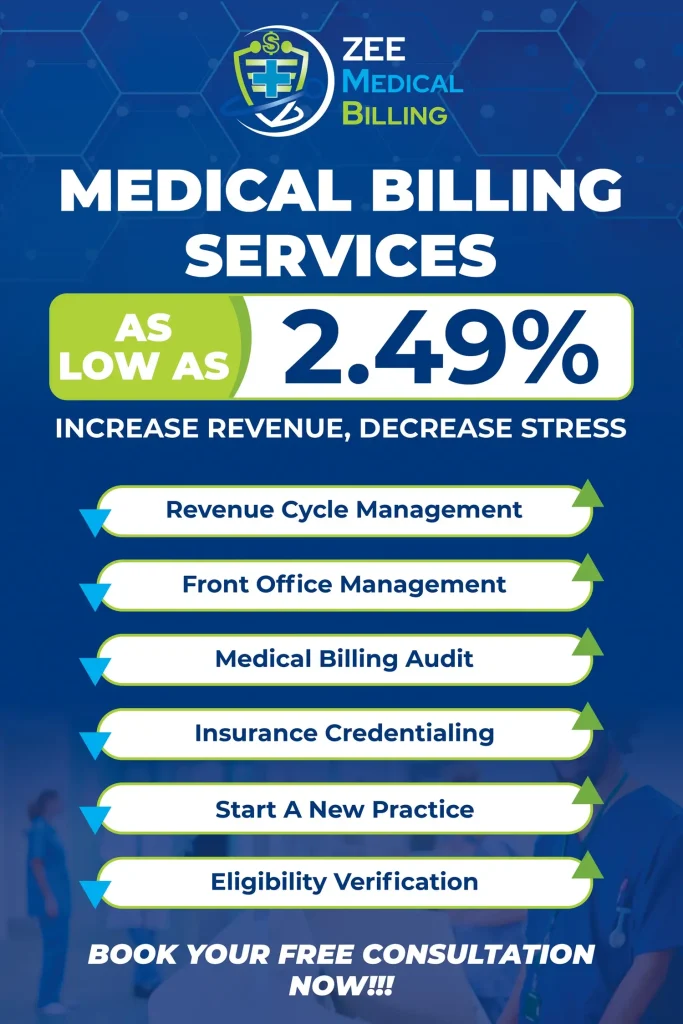As a cardiology billing and coding service, we can assist you with any kind of cardiac procedure, including invasive, non-invasive, interventional cardiology, congenital, and coronary procedures. We can quickly and precisely code all of them. Whether you are a general, pediatric, or interventional cardiologist, we can tailor our administrations to meet your needs. Reach out to us immediately to allow us to handle your coding and billing for cardiology.
Mastery of cardiology and the intricate coding, documentation, and compliance necessities of cardiovascular medications are expected for specific cardiology billing administrations for interventional strategies. These billing administrations should have the accompanying key elements:
Exact CPT and ICD-10-CM coding for comprehensive procedures
To keep away from refusals, cardiology charging for mediations like angioplasties, stenting, electrophysiology studies, and catheterizations requires exact CPT and ICD-10 coding
- Coding Guidelines Updates routinely: The help needs to stay aware of the latest cardiology-explicit codes and necessities because of the regular coding refreshes; for example, changes in NCCI alters.
Billing expertise in interventional cardiology and an exhaustive comprehension of methods
The billing administration needs to have a careful comprehension of each and every part of strategies like transcatheter valve substitutions, removals, and percutaneous coronary interventions (PCI) to ensure exact coding and charging.
• Help with Documentation Improvement:
Interventional systems, which are frequently muddled and require precise wording to maximize reimbursements, should get help from administrations in their documentation rehearsals.
Management of Appeals and Authorizations
• Prior Authorization:
Prior authorization is required for many interventional cardiology procedures, particularly costly ones like certain stents, cardiac catheterizations, and device implants.
• Process for Appeals:
Since insurers frequently scrutinize interventional procedures, the billing service must have an effective method for managing and appealing denials.
Maintaining up to date with payer-specific rules and policies
In terms of bundled payments, permissible modifiers, and global periods, payers have specific policies. To avoid incorrect claims that cause payments to be delayed, knowing these is essential.
- Checks for compliance and auditing: To protect against audits, penalties, and payment delays, regular internal audits ensure compliance with Medicare, Medicaid, and other payer policies.
Interventional cardiology revenue cycle management
- Timely claim submission and follow-up: Because interventional procedures can be costly, prompt reimbursement is guaranteed by a speedy and effective claims procedure.
- Analytics and management of denials: Understanding trends, recognizing common issues, and enhancing overall billing accuracy and revenue can all be aided by analyzing denials about cardiology procedures.
Specialized Reporting for Optimizing Revenues
- In-depth Reporting and Data: You can keep an eye on key performance indicators (KPIs), identify patterns, and fill in any revenue cycle management gaps if you have access to specialized interventional cardiology reports.
Effective Medical Billing for Cardiology
You are in the business of saving lives. But are billing complications draining your resources and time? Imagine a world in which you only care about your patients and a team of experts in billing and coding takes care of the complex art of cardiology billing.
You can enter that world. We at Zee Medical Billing specialize in easing the burden of billing into streamlined revenue management.
Because our cardiology billing services are custom-tailored to your practice, they guarantee accurate coding, prompt reimbursement, and a minimum number of errors.
Best Practices and Its Associated Codes
We recognize the importance of pre-authorization for cardiac surgery in preventing authorization denials and provide the following best practices.
- Knowledgeable Group: Our team is well-versed in the cardiology billing CMS codes and modifiers, ensuring that these guidelines are strictly followed.
- Using Combinational Codes: For conditions related to cardiology, ICD-10 provides some combination codes. Our coders receive specialized training to apply these codes accurately.
- Ensuring Conformity: To keep up with changing coding and billing guidelines and ensure accurate and compliant coding practices, regular training for coders and clinicians is essential.
- Coding for a diagnosis rather than symptoms: To guarantee accurate billing and treatment documentation, code for the specific diagnoses and procedures carried out as opposed to symptoms alone.









